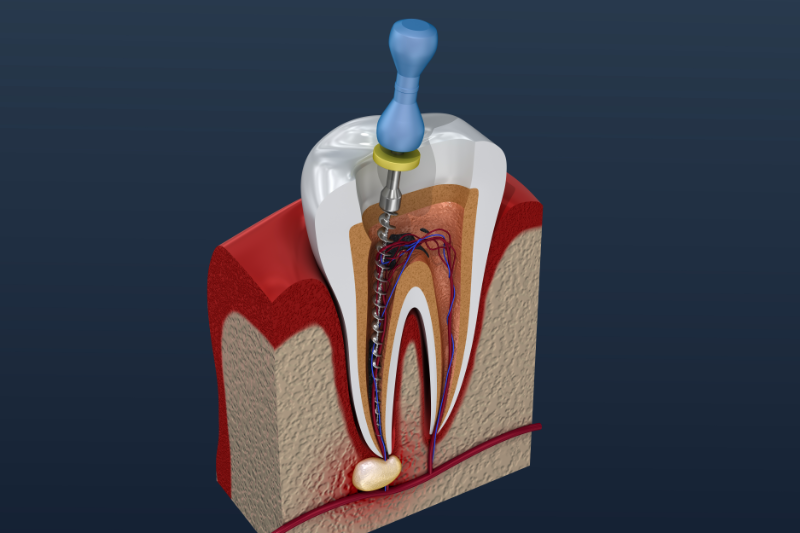Root Canals and New Crowns

When Dr. Still places a dental crown on a tooth, it is always his hope that this will be the last procedure that the tooth will need for a very long time. Unfortunately, since crowns are not placed on perfect teeth but instead on those teeth that have been seriously compromised by fracture, breakage or the presence of tooth decay, complications can occur. In many cases, it’s possible that the same traumatic event that has caused the need for crown placement has also damaged or compromised the tooth’s nerve tissue (pulp). If so, root canal treatment will ultimately be required.
Relative to the time the crown is placed, the need for root canal may or may not become apparent right away. Teeth that are newly repaired with a crown are usually sensitive at first, most likely to cold and this can last for a few days or a few weeks. If this sensitivity does not go away, or the tooth becomes sensitive to hot or is aching spontaneously, it’s time to come in so Dr. Still can make a diagnosis to refer you to an endodontist, (a dentist who specializes in treating the tooth nerve tissue) for an evaluation. (Read more here about Dental Specialists and why they are important.)
Various scenarios can take place that ultimately lead to a tooth’s need for root canal treatment. Usually, it is inflammation triggered by trauma. Any type of incident that causes tooth trauma (such as a blow that has fractured a tooth) can have a detrimental affect on the health of a tooth’s nerve tissue (dental pulp). When a tooth receives mechanical insult, its nerve tissue (just like any other type of soft body tissue) responds with tissue swelling. So how does this relate to crowned teeth? Tooth breakage, fracture or the presence of a large amount of tooth decay can also be events that cause enough damage to a tooth that dental crown placement is required. So, yes, there is a relationship between crown placement and the need for root canal therapy. But it’s not that one has caused the other but instead that the precipitating event has caused a need for both.
Should Dr. Still have anticipated your tooth’s need for root canal treatment and mention it beforehand? In his defense, it’s really impossible for him to be all-knowing. However, he always tells a patient that it can be a possibility, especially if the decay he removes when preparing the tooth for a crown is very close to the nerve. There is a statistic that 5% to 7% of teeth that receive crown restorations end up needing root canal treatment. That means that 93% or more don’t need root canal. The reason that this happens sometimes is that crowns in most cases are placed on teeth that are filled heavily in the first place. They have a history of being filled and refilled. All this treatment traumatizes the nerve inside the tooth which can eventually die. This leads to the necessity of doing root canal treatment.
But wait! You are probably wondering what will happen to your new crown when a root canal is done. Don’t worry! The endodontist will make a very small hole in the top of the crown and he works through a magnifying microscope to do the procedure. Once the tooth settles down, Dr. Still will repair that tiny hole in your crown.
Click here for a great link to more information about root canals



